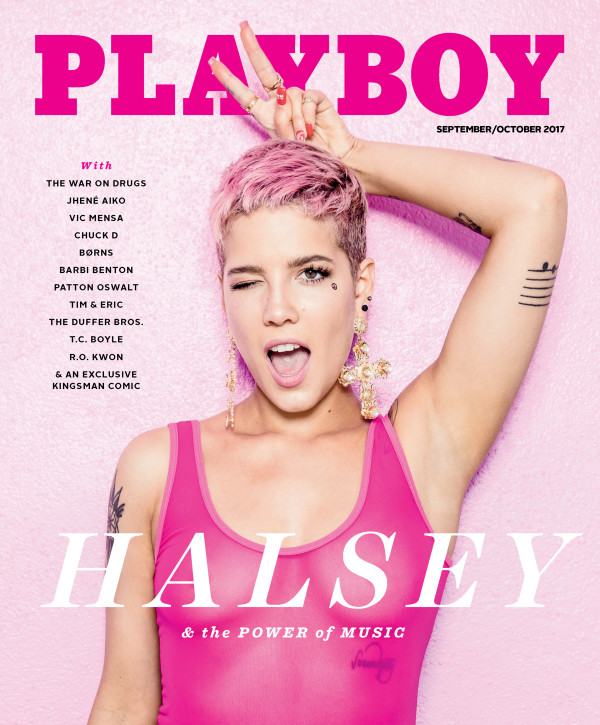Halsey Covers Our Music Issue—and Proves No Topic is Off-limits
Playboy
20Q
2017-08-05 (September 2017 Issue)
By Rebecca Haithcoat
Photography by Ramona Rosales

With Hopeless Fountain Kingdom, the queen of New Americana is more outspoken than ever. Here, she covers everything from donating $100,000 to Planned Parenthood to the virtues of the dad bod.
Q1
Hopeless Fountain Kingdom hit number one on the Billboard 200. You’re the first woman to top that chart in 2017. How does it feel?
A lot of this accolade shit is super arbitrary: “Halsey is the first girl with blue hair from New Jersey to.…” It’s exciting but also enraging, because I know a lot of women who put out better albums than me who deserve massive accolades, and I’m the one who had to break the seal…
…Q14
How did you navigate growing up biracial?
I’m half black. My dad managed a car dealership, wore a suit to work, had a nice watch, was always clean-shaven, handsome, played golf on the weekends. And people would come up to him like, “Yo, brotha! What’s up!” And my dad would be like, “Hi.…”
Q15
How did that affect you?
I’m white-passing. I’ve accepted that about myself and have never tried to control anything about black culture that’s not mine. I’m proud to be in a biracial family, I’m proud of who I am, and I’m proud of my hair. One of my big jokes a long time ago was “I look white, but I still have white boys in my life asking me why my nipples are brown.” Every now and then I experience these racial blips. I look like a white girl, but I don’t feel like one. I’m a black woman. So it’s been weird navigating that. When I was growing up I didn’t know if I was supposed to love TLC or Britney.
Q16
How do people react when they do find out you’re biracial?
White guilt is funny, but this is a really hard time for white allies. People don’t want to do too much but want to do enough, and in my bubble of Los Angeles I’m surrounded by a lot of good people with a lot of good intentions. But as I learned in this past election, my bubble is just a small fraction of how this country operates. That is ultimately my greatest frustration with the public perception of any sort of activism: the mentality of “Well, it’s not affecting me.” Open your fucking eyes…
Read the entire interview here.
